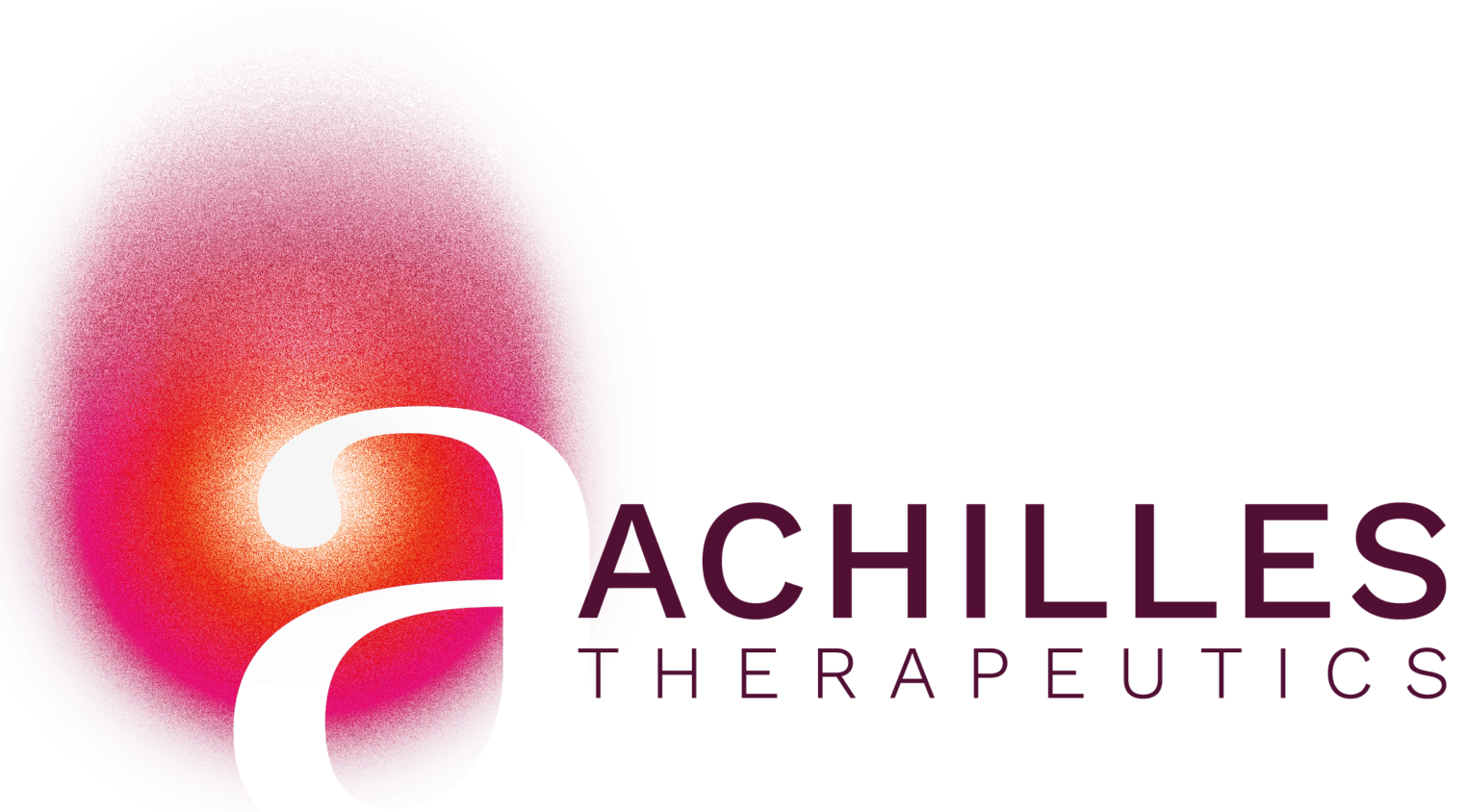Stevenage, UK 29 May 2020 — Achilles Therapeutics (“Achilles”), a clinical stage biopharmaceutical company developing personalised cancer immunotherapies, today announced that it has dosed the first patient in a Phase I/II study of a clonal neoantigen T cell (cNeT) therapy in patients with recurrent or metastatic malignant melanoma. This is the first tumour-infiltrating lymphocyte (TIL) therapy to enter clinical trials where the TILs have been specifically selected to target clonal neoantigens — antigens which are believed to be present on all tumour cells.
The THETIS study is an open-label, multi-centre Phase I/II trial evaluating the safety, tolerability and clinical efficacy of cNeT therapy as a single dose in patients with recurrent or metastatic malignant melanoma. The trial is expected to recruit approximately 20 patients and report initial data in the first half of 2021. Recruitment is ongoing across sites in the UK, with additional sites to open in the US and Europe. Link to Study.
“The dosing of our first melanoma patient with a cell therapy to specifically target all cancer cells, marks a significant milestone in delivering the first precision TIL therapy. We have used a unique and proprietary data set derived from cancer patients over a period of many years (TRACERx) to generate a powerful predictive tool which, together with the DNA of a patient’s own tumour, can be used to create an entirely personalised cell therapy designed to be exquisitely specific and effective,” said Dr Iraj Ali, CEO of Achilles Therapeutics. “As we continue to navigate the unprecedented COVID-19 pandemic, we are incredibly grateful to patients and their families, investigators and their colleagues at clinical study sites, and our employees for working to advance this important study that has the potential to treat a very challenging and life-threatening cancer.”
“Patients with metastatic melanoma have very limited treatment options after immune checkpoint inhibitors have failed,” said Professor Ruth Plummer, Clinical Professor of Experimental Cancer Medicine, Faculty of Medical Sciences, Newcastle University and The Newcastle upon Tyne Hospitals NHS Foundation. “This is the first patient in the UK to receive a personalised clonal neoantigen reactive T cell product and we are very excited that this has been achieved in Newcastle in the midst of such unprecedented times, and is testament to the great collaboration between us and Achilles.”
Achilles is developing personalised T cell therapies for solid tumours targeting clonal neoantigens: protein markers unique to each patient that are present on the surface of all cancer cells. Using its PELEUSâ„¢ bioinformatics platform, Achilles can identify clonal neoantigens from each patient’s unique tumour profile which are present on every cancer cell. Achilles uses its proprietary process to manufacture T cells (cNeT) which exquisitely target a specific set of clonal neoantigens in each patient. Targeting multiple clonal neoantigens that are present on all cancer cells, but not on healthy cells, reduces the risk that new mutations can induce immune evasion and therapeutic resistance, and allows individualised treatments to target and destroy tumours without harming healthy tissue.
— Ends —
Notes for Editors:
About Achilles Therapeutics
Achilles Therapeutics is a biopharmaceutical company developing personalised T cell therapies targeting clonal neoantigens: protein markers unique to the individual that are expressed on the surface of every cancer cell. Achilles uses DNA sequencing data from each patient, together with the proprietary PELEUSâ„¢ bioinformatics platform, to identify clonal neoantigens specific to that patient, and then develop personalised T cell-based therapies specifically targeting those clonal neoantigens.
Achilles was founded in 2016 by lead investor Syncona Ltd and in September 2019 the Company raised £100M in an oversubscribed Series B financing led by RA Capital, cornerstoned by Syncona and joined by new investors including Forbion, Invus, Perceptive Advisors and Redmile Group. For further information please visit the Company’s website at: www.achillestx.com
About Melanoma
Melanoma, the most serious form of skin cancer, is characterised by the uncontrolled growth of pigment-producing cells. It can be more serious than the other forms of skin cancer because of a tendency to metastasize to other parts of the body. The primary cause of melanoma is ultraviolet light (UV) exposure in those with low levels of the skin pigment melanin. Those with many moles, a history of affected family members and poor immune function are at greater risk. The number of people developing melanoma is rising. In 2020, over 196,000 Americans are expected to be diagnosed with melanoma. It is also now the 5th most common cancer in the UK with approximately 16,000 newly diagnosed cases each year.
About TRACERx
The TRACERx (TRAcking Cancer Evolution through therapy (Rx)) is a translational research study, led by Achilles founder, Professor Charles Swanton, aimed at transforming our understanding of cancer evolution and take a practical step towards an era of precision medicine.
Despite major advances in the understanding of cancer biology and the translation of these findings into novel therapeutics, the majority of patients with advanced melanoma fail to derive durable clinical benefit from existing standard-of-care therapies. Through integrative analysis of genomic and immunological landscapes, the TRACERx study seeks to address this. Tumour specimens and peripheral blood are studied in highly relevant contexts at multiple stages of a patient’s treatment journey, from potentially curative resections of locally-advanced disease, through to biopsies of lesions responding or refractory to systemic therapies in the setting of advanced disease.
Wherever possible, analyses will be performed in a longitudinal manner, allowing serial assessment of anti-tumour immunity, tumour-specific genomics and their interaction. Key objectives of the study include determination of spatial and temporal changes in immunological, genomic and transcriptomic landscapes, identification of novel molecular drivers, immunotherapeutic targets and assessment of the impact of cytotoxic, immune-modulatory and targeted therapies on both the tumour microenvironment and peripheral blood.
Further information:
Achilles Therapeutics
Dr Iraj Ali — Chief Executive Officer
+44 (0)1438 906 906
media@achillestx.com
Julia Wilson — Head of Communications
+44 (0)7818 430877
j.wilson@achillestx.com
Consilium Strategic Communications
Mary-Jane Elliott, Sukaina Virji, Melissa Gardiner
Tel: +44 (0) 203 709 5000
achillestx@consilium-comms.com
US Investor Relations — Solebury Trout
Lee Stern
+1 646-378-2922
lstern@troutgroup.com
